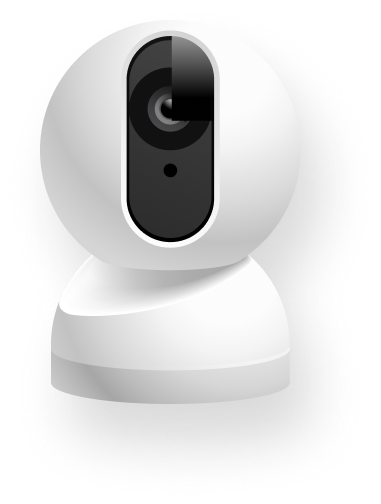When it comes to installing security cameras, the first person many Australians think to call is an electrician. After all, they run cables and hook up systems and know their way around a meter box, right? But here's the reality: in Australia, installing security cameras legally requires more than just electrical know-how—it requires a security license or registration.
Unfortunately, social media posts asking for security camera installation recommendations are flooded with electricians offering their services.
Here's the kicker—90% of those electricians don't have the proper security license. And yes, I check.
So, let's break down why you shouldn't hire an electrician and why a licensed security installer is the right choice.
by Bryce Whitty
Bryce is a registered Security Advisor who started ProtectFind to help people get the right security system for their goals.
1
Why a Security License is Essential
Under Australian law, a person installing security cameras must have a security license or registration. This isn't just bureaucratic red tape—there's a good reason for it. Security installation is a position of trust.
Installers are often privy to sensitive information about your property, like where cameras are placed, how footage is accessed, and the value of the items that are being secured. The licensing process includes stringent police checks to help ensure that only trustworthy professionals handle this responsibility.
While some electricians do carry a security registration, most don't. And many, either out of ignorance or opportunism, take on these jobs illegally.

2
What's Involved in Installing Security Cameras?
Installing a security camera is more complex than running a few wires and screwing in a camera. Licensed security installers bring specialized expertise that electricians typically don't have, such as:
- Optimal Camera Placement: Knowing where to place cameras to cover entry points and eliminate blind spots.
- Improving Detection and Reducing False Positives: Setting up complex triggers to detect intruders, but not be triggered by false positives like things blowing in the wind or car headlights
- System Integration: Connecting cameras to a recording system and ensuring remote access works seamlessly.
- Privacy Considerations: Following legal guidelines for positioning cameras to avoid recording areas like neighbouring properties.

3
The Risks of Hiring an Unlicensed Installer
By choosing an electrician without a security license, you're taking a significant risk. Not only could they botch the job, but you may also be breaking the law by hiring them.
Another major concern is that insurance companies may ask who installed your security system if there is an intrusion. If they discover it was done by someone without the proper license, they may decline your insurance claim.
Here are some common scenarios:
- Residential Properties: Security installers are often hired by people who feel vulnerable after an incident or near-miss. The last thing they need is to be left unprotected because of poor installation, or invite someone into their home that hasn't undergone stringent police checks.
- Commercial Sites: Businesses can have millions of dollars worth of equipment and stock on-site. A poorly installed system is a weak point that compromises security.
4
Understanding Security Licenses in Australia
Each state and territory in Australia has its own licensing requirements, but they all agree on one thing: you need the right license for the job.
There are typically two types of licenses:
- Individual License: For the person doing the installation work as an employee.
- Master/Business/Firm License: For the business overseeing the work.
To make things even more confusing, many electricians (and even some security installers) hold an individual license and run their own security installation business.
However, the individual license only permits them to perform security work as an employee (even if it's their own business). The business itself also needs a Master/Business/Firm license to operate legally. This means there are a lot of licensed, but incorrectly licensed security installers who unknowingly or knowingly operate outside of legal requirements.
Even those in the security industry sometimes find the licensing rules confusing, so it's no wonder consumers struggle to understand them.
5
How to Check Security Licenses / Registrations
Most Australian states provide a way check if your installer has a security license or registration. You can search for their names or business names for each state here:
The Northern Territory and Tasmania do not have security licensing.
6
How We Can Help
Choosing a security installer might feel overwhelming, but that's why we do what we do.
Our referral network connects you with correctly licensed and insured security installers who have passed the necessary checks and qualifications.
By using our service, you eliminate the guesswork and avoid the risks of hiring an unlicensed person.
Ready to take the risk out of security camera installation?
Get a Quote Today, and we'll connect you with a trusted professional who ticks all the boxes.
When it comes to securing your home or business, don't take shortcuts. Installing security cameras isn't just about wiring—it's about trust, expertise, and legal compliance. By hiring a licensed security installer, you're not just getting a system; you're getting peace of mind.
